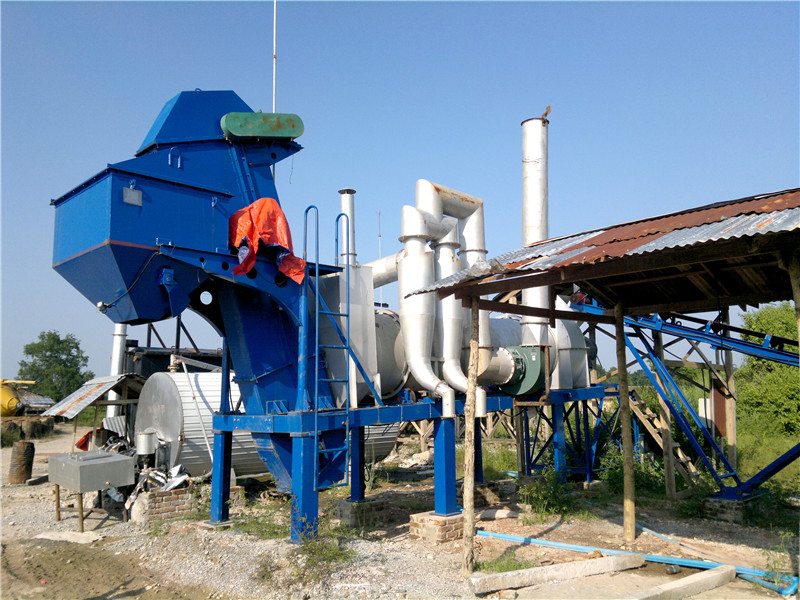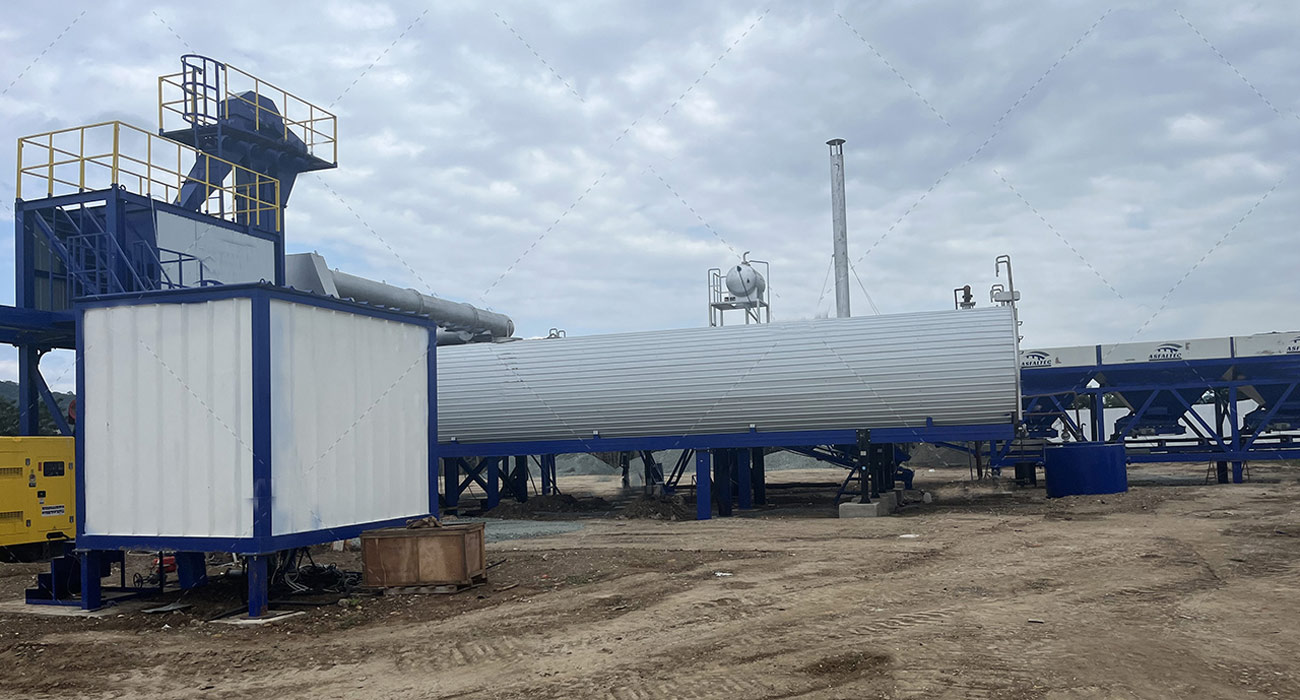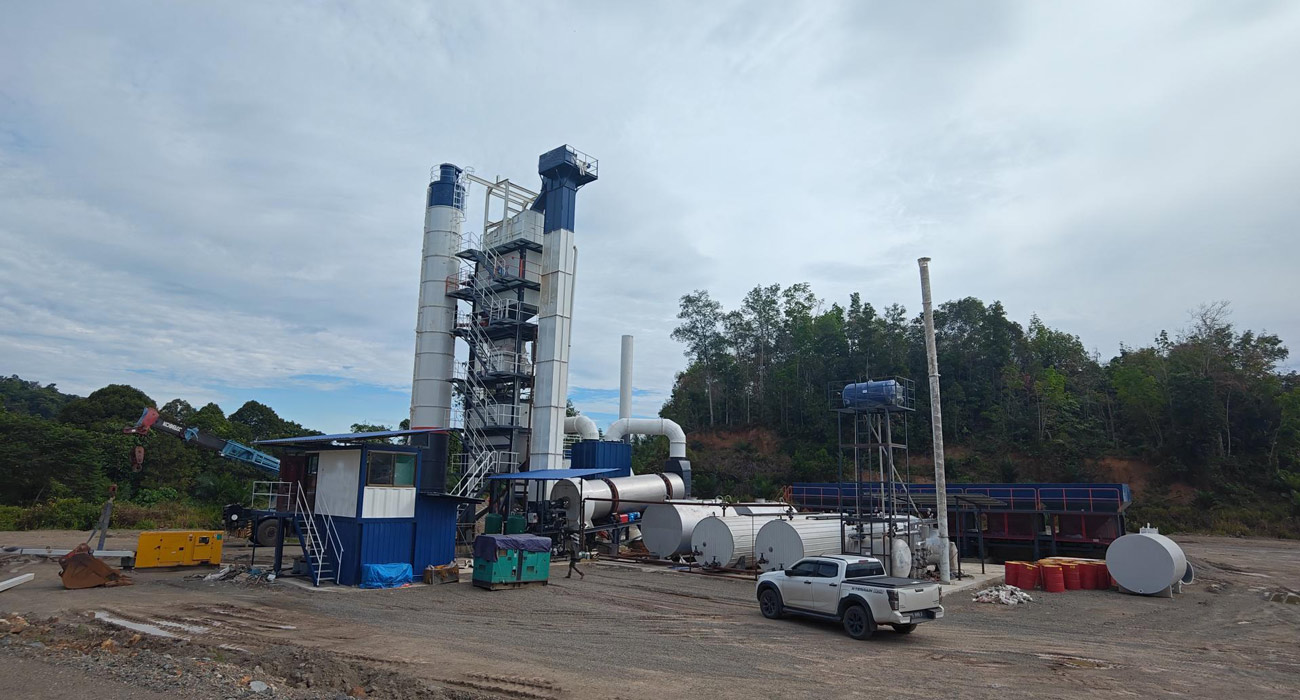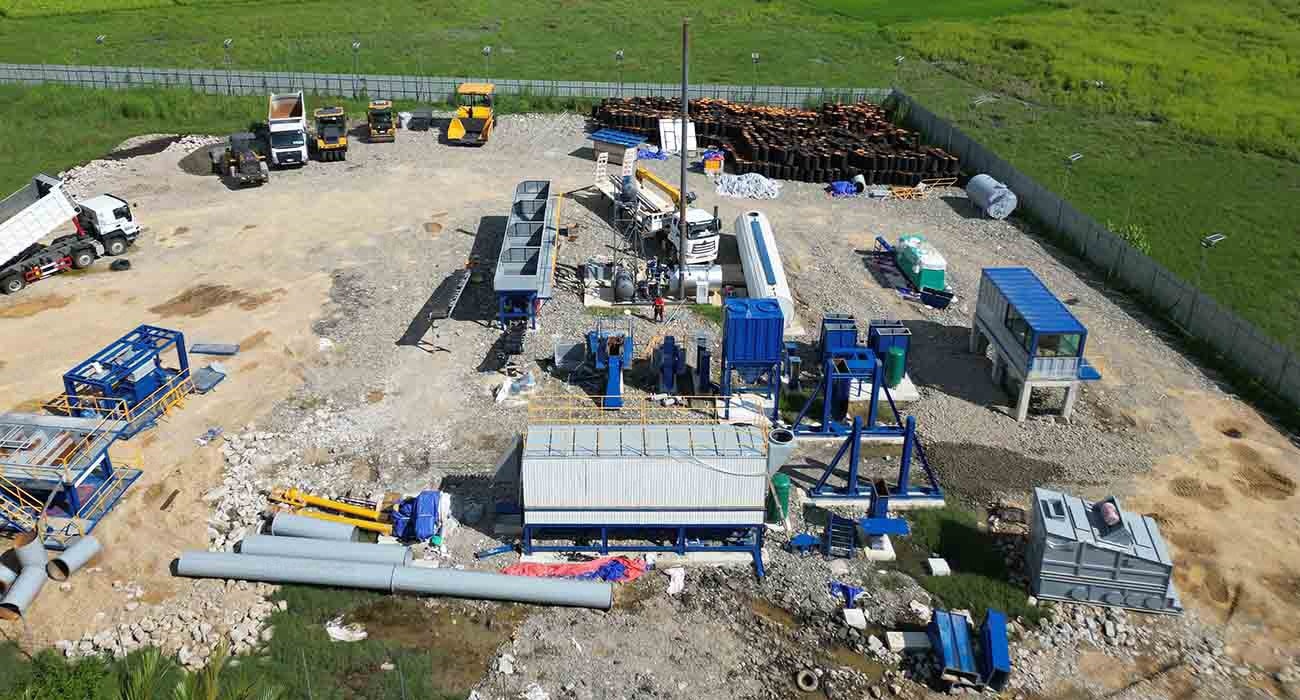30
0
0
Impact of Road Surface Compaction on Asphalt Mix Design
The road surface compaction process is a critical aspect of asphalt paving that significantly influences the mix design used in asphalt mixing plants. Effective compaction ensures the longevity and durability of the pavement, making it essential for engineers and contractors to understand its impact on mix design. This article explores how compaction affects asphalt mix design and the implications for asphalt production.

Understanding the Compaction Process
Compaction is the process of densifying the asphalt mixture by removing air pockets and ensuring proper bonding between aggregates and the binder. The effectiveness of this process directly relates to the design of the asphalt mix. Proper compaction leads to a denser and more durable surface, which can resist deformation and cracking under traffic loads.
During the compaction phase, factors such as temperature, roller type, and the number of passes play a vital role. For instance, if the asphalt is not compacted at the optimal temperature, it can result in insufficient density, leading to a weaker pavement structure. This is especially important for stationary asphalt mixing plants, where consistency in temperature and material properties must be maintained throughout production.

Adjusting Mix Design for Compaction Requirements
The mix design of asphalt needs to be tailored to accommodate the expected compaction levels. This involves selecting appropriate aggregate sizes, binder types, and additive materials that enhance the mixture's compaction properties. For example, using a well-graded aggregate blend can improve the packing of materials, facilitating better compaction during the paving process.
In drum mix asphalt plants, where continuous production occurs, adjustments to the mix design can be made based on real-time data from compaction results. If initial compaction tests show inadequate density, operators can modify the mix by altering the binder content or incorporating additives that enhance workability and compaction.
For mobile and mini asphalt mixing plants, the ability to adapt mix designs on-site based on compaction feedback can lead to improved performance. This flexibility allows for the immediate application of changes, ensuring that the asphalt laid down meets the required specifications for density and strength.

Quality Control and Long-Term Performance
A well-optimized mix design that considers the compaction process not only affects immediate paving results but also has long-term implications for pavement performance. Properly compacted asphalt can significantly reduce the risk of issues such as rutting, cracking, and moisture infiltration, which can lead to costly repairs and maintenance.
Quality control measures must be implemented throughout the mixing and paving processes to monitor the effects of compaction on asphalt performance. This includes conducting density tests, monitoring temperature during production and compaction, and assessing the overall integrity of the pavement. By integrating these quality control measures, asphalt mixing plants can ensure that their products are of the highest quality.
Moreover, the collaboration between the asphalt mixing plant and paving crews is essential. Effective communication allows for real-time adjustments based on compaction performance, resulting in a higher-quality final product. This collaboration is crucial for all types of asphalt mixing plants, whether stationary, mobile, or portable.
Conclusion
In conclusion, the road surface compaction process has a significant impact on the mix design of asphalt used in mixing plants. By understanding the relationship between compaction and mix design, operators can enhance the performance and longevity of asphalt pavements.
Tailoring mix designs to meet compaction requirements, implementing effective quality control measures, and fostering collaboration between mixing plants and paving teams are all crucial for optimizing asphalt production. As the demand for durable and high-quality road surfaces continues to grow, focusing on the compaction process will remain a key factor in successful asphalt paving projects.

Understanding the Compaction Process
Compaction is the process of densifying the asphalt mixture by removing air pockets and ensuring proper bonding between aggregates and the binder. The effectiveness of this process directly relates to the design of the asphalt mix. Proper compaction leads to a denser and more durable surface, which can resist deformation and cracking under traffic loads.
During the compaction phase, factors such as temperature, roller type, and the number of passes play a vital role. For instance, if the asphalt is not compacted at the optimal temperature, it can result in insufficient density, leading to a weaker pavement structure. This is especially important for stationary asphalt mixing plants, where consistency in temperature and material properties must be maintained throughout production.

Adjusting Mix Design for Compaction Requirements
The mix design of asphalt needs to be tailored to accommodate the expected compaction levels. This involves selecting appropriate aggregate sizes, binder types, and additive materials that enhance the mixture's compaction properties. For example, using a well-graded aggregate blend can improve the packing of materials, facilitating better compaction during the paving process.
In drum mix asphalt plants, where continuous production occurs, adjustments to the mix design can be made based on real-time data from compaction results. If initial compaction tests show inadequate density, operators can modify the mix by altering the binder content or incorporating additives that enhance workability and compaction.
For mobile and mini asphalt mixing plants, the ability to adapt mix designs on-site based on compaction feedback can lead to improved performance. This flexibility allows for the immediate application of changes, ensuring that the asphalt laid down meets the required specifications for density and strength.

Quality Control and Long-Term Performance
A well-optimized mix design that considers the compaction process not only affects immediate paving results but also has long-term implications for pavement performance. Properly compacted asphalt can significantly reduce the risk of issues such as rutting, cracking, and moisture infiltration, which can lead to costly repairs and maintenance.
Quality control measures must be implemented throughout the mixing and paving processes to monitor the effects of compaction on asphalt performance. This includes conducting density tests, monitoring temperature during production and compaction, and assessing the overall integrity of the pavement. By integrating these quality control measures, asphalt mixing plants can ensure that their products are of the highest quality.
Moreover, the collaboration between the asphalt mixing plant and paving crews is essential. Effective communication allows for real-time adjustments based on compaction performance, resulting in a higher-quality final product. This collaboration is crucial for all types of asphalt mixing plants, whether stationary, mobile, or portable.
Conclusion
In conclusion, the road surface compaction process has a significant impact on the mix design of asphalt used in mixing plants. By understanding the relationship between compaction and mix design, operators can enhance the performance and longevity of asphalt pavements.
Tailoring mix designs to meet compaction requirements, implementing effective quality control measures, and fostering collaboration between mixing plants and paving teams are all crucial for optimizing asphalt production. As the demand for durable and high-quality road surfaces continues to grow, focusing on the compaction process will remain a key factor in successful asphalt paving projects.
Signatur
